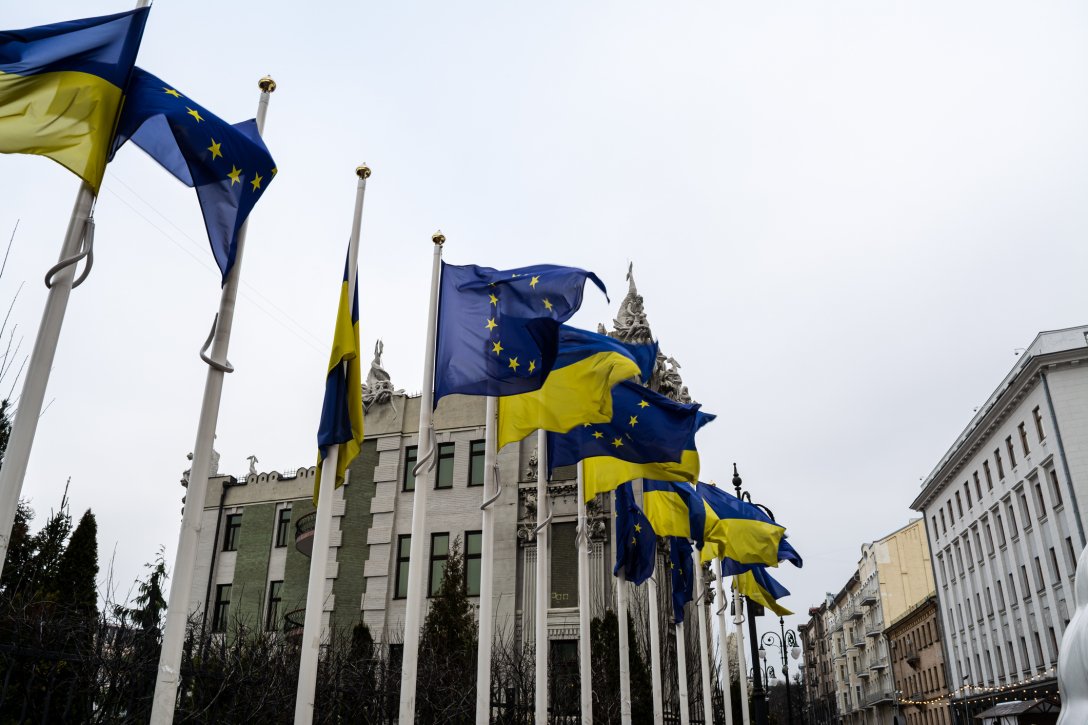We're losing them: why Europeans are reluctant to back Ukraine "until victory."
The results of the December YouGov survey conducted in France, Germany, Italy, Spain, Sweden, Denmark, and the UK, which are published by The Guardian, indicate that the willingness of residents from these seven European countries to support Ukraine has sharply declined over the past 12 months. The public opinion study specifically showed that the readiness to support Ukraine until victory over Russia remains high in Sweden (50%) and Denmark (40%), while in the UK this figure stands at 36%. However, the numbers in all three countries have significantly decreased compared to the January 2023 figures of 57%, 51%, and 50%, respectively.
Alongside this, during the same period, the percentage of those who prefer achieving peace through negotiations has increased to 55% from 45% in Italy, 46% (38%) in Spain, 43% (35%) in France, and 45% (38%) in Germany, which has been accompanied by a corresponding decline in the willingness to support Kyiv until its victory over Russia. "It is not entirely clear whether this change reflects a decrease in interest or growing fatigue from the Russian-Ukrainian war. For instance, in France, Germany, and Sweden, the share of those who wish for Ukraine's victory and support it has remained stable since the beginning of 2023, although in other countries it has noticeably decreased," summarizes The Guardian.
Meanwhile, a recent "Eurobarometer" survey demonstrated that more than half of the citizens of neighboring Poland have, for the first time, supported the opinion that the war should end, even if Ukraine has to give up part of its territory or even its independence.
How to Restructure the "Remote" Expectations Regarding the War

In the current situation, the expert believes that Ukraine should shift its focus from the front lines to the need for substantial enhancement of economic sanctions against Russia: "Russia's financial inability to wage war could indeed be the incentive that ultimately forces Moscow to not just pause the war but also withdraw its troops. In this sense, an important task for both Ukrainian diplomacy and Western elites is to somewhat restructure the 'remote' expectations, as the mood is indeed somewhat concerning."
As for the aforementioned position of the Poles, Alexander Leonov explained it as follows: "On one hand, we must understand that the Poles are indeed preparing for a possible war with Russia, which is why their Prime Minister Tusk, during a recent meeting with Zelensky, justified the decrease in support from Warsaw by stating that we are a frontline country. However, on the other hand, there is a strong feeling that the Poles do not believe that Russia will attack their country specifically, as Poland is in NATO, and Poland is increasing its military budget to 5% of GDP, and so on. Meanwhile, society reacts to the statements, decisions, and practical steps of its government, and at the moment it has formed conclusions that are not particularly pleasant for us. One hopes that such a view is situational."
Why Ukraine Needs a New Concept of Cooperation with the West
Separately, Alexey Yakubin emphasizes that the trends of diminishing willingness among Western societies to support Ukraine "clearly manifested and began to grow" after Donald Trump's victory in the US presidential elections. "After Trump and his entourage began systematically stating that the burden of supporting Ukraine should be, so to speak, more heavily borne by Europe rather than by America, public sentiments among Europeans changed noticeably. Why? Because, in Europe itself, particularly in Germany, France, and other countries, the economic situation is not the best, and the written rule that one's own shirt is closer to the body comes into play. In other words, Europeans are much more focused on their own challenges, while pushing all other issues to the background. I would also like to draw special attention to the fact that leading Western media are not so much ignoring the topic of the Russian-Ukrainian war, but it quite often does not make it to the front pages, which also sends certain signals to the public."
At the same time, the expert believes that Kyiv should constantly "keep its finger on the pulse" of relations with neighboring countries, which may significantly complicate with Ukraine's approaching status of EU membership, as Kyiv will be seen by them primarily as a competitor, particularly in the agricultural sector. Of course, the political scientist notes, the theme of searching for peace will continue to dominate in the public sphere, but the case of "risks of Ukraine's EU membership" will play a significant behind-the-scenes role.
By the way, speaking of the peace settlement track, it should be noted that shortly after the recent meeting of the Prime Minister of neighboring Slovakia, Robert Fico, with Putin, the latter stated that Bratislava is ready to provide a platform for peace negotiations and "Russia is not against this." Following this statement from the Kremlin leader, Slovakia's Foreign Minister Juraj Blanar assured that Slovak diplomacy is "ready to actively promote the peace process between Russia and Ukraine." He specifically emphasized that Putin's approval that part of the peace negotiations could take place in Slovakia is an extremely positive signal for "the swift end of the war, bloodshed, and destruction."